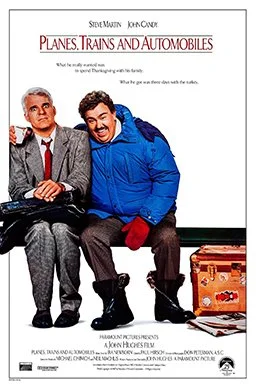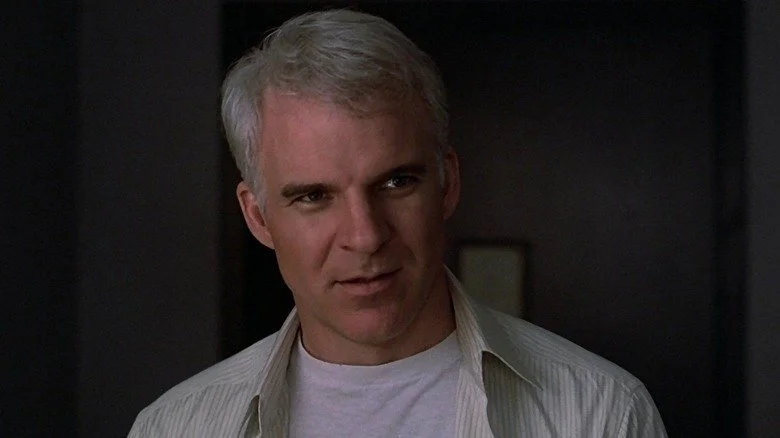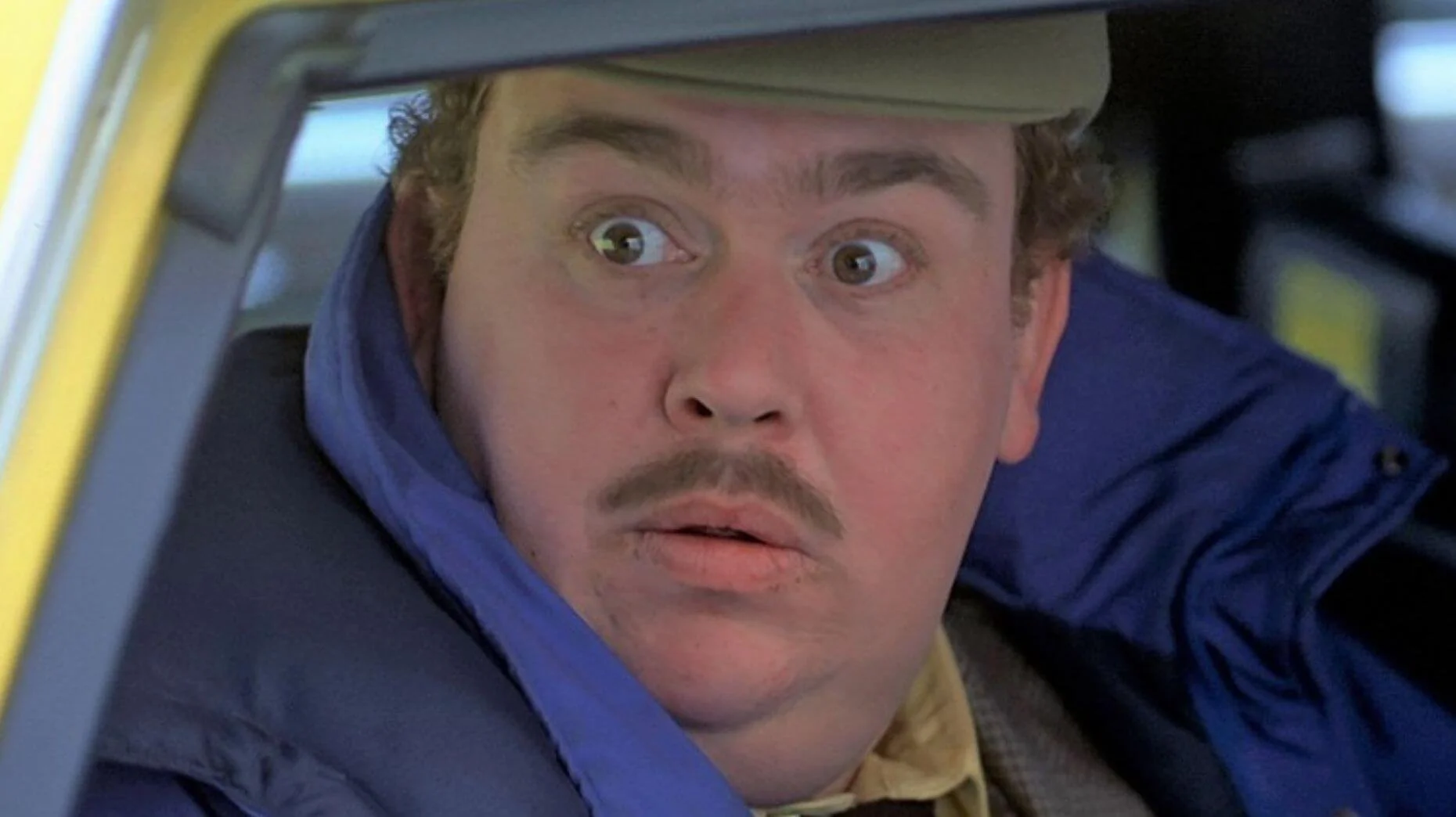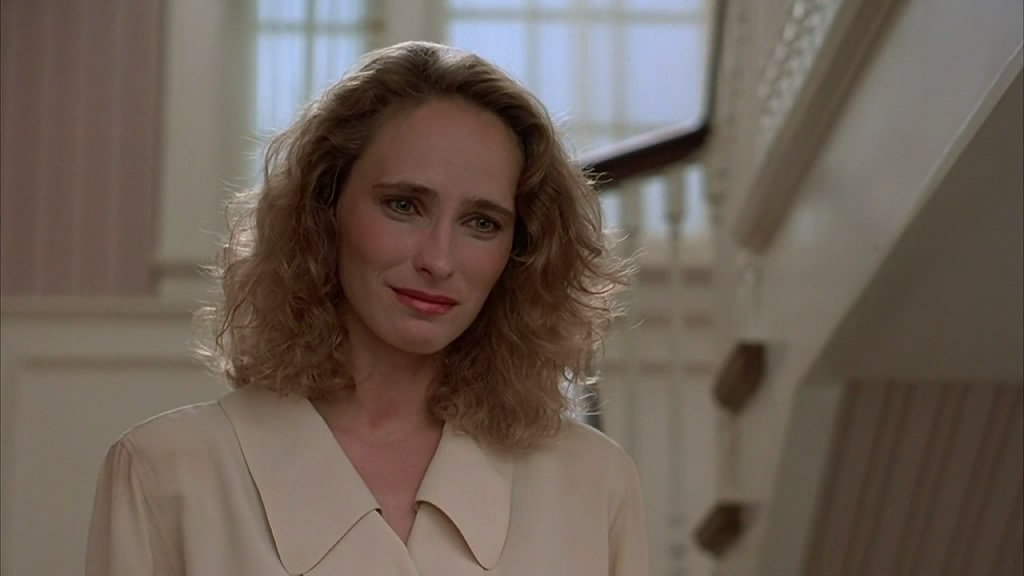The Enduring Mileage of PLANES, TRAINS AND AUTOMOBILES
One of my most vivid memories in my entire eighteen years of schooling happened in seventh grade.
It was the fall of 2000, and we were in one of those dead weeks right before the Thanksgiving break, when there wasn’t enough time in the week to start learning anything new, but too many school days left to give up entirely. So our teacher, Mr. Isenhower, decided to use this dead time in other ways. He decided to start sharing the movies he watched every year to celebrate the holidays with us, a classroom full of eleven and twelve year old freaks, ready to get the hell out of there and eat some turkey.
Although this seems like a bit of a risk on paper, Mr. Isenhower’s advantage was that he had good taste. He would go on later in the year to introduce us all to the 80s holiday mainstay NATIONAL LAMPOON’S CHRISTMAS VACATION, but for this go-around, he put in a movie most of us had never heard of, although we certainly knew its two stars: Steve Martin and John Candy, both of whom are working their way across the American East Coast to get Martin home to Chicago in time for Thanksgiving dinner with his family.
The movie was, on the whole, fairly G-rated, able to be consumed by general audiences. However, Mr. Isenhower did have one boundary, one alteration he would have to make as we worked our way through the picture: there was one scene, one solitary sequence that he was going to have to edit, due to its use of a particular expletive, one of the only ones so incendiary that we categorize its utterance as an explosive. Unfortunately, the long scene where Steve Martin cusses out an airport ticket clerk with a barrage of f-words would have to be amended somehow.
Fortunately, Mr. Isenhower had a solution. Since the offensive material was only audible, he decided to just mute the TV as the scene unfolded. The effect was two-fold; the story could unfold unencumbered, and our virgin ears would be spared from hearing a repeated curse word that we frankly had already been hearing for years (hell, we had probably been saying it to each other earlier that day).
Here’s the thing that made this solution so genius. The animated way that Steve Martin let those f-bombs fly, it was absolutely clear what we were missing. Even at 0% volume, the “fucks” were so pronounced that we basically could hear the scene anyway. As the scene continued, and “fucks” built on top of previous “fucks”, the energy in the room became electric. By the time the scene reached its punchline, as a the ticket clerk hit Martin right back with a (for us, muted) “fuck” of her own, the classroom may as well have exploded, we were so happy. The moment was so perfect, I could swear it was Mr. Isenhower’s plan all along. He got to be a certified legend and maintain 100% plausible deniability. It’s what I would have done. What else could there be to be thankful for?
Thus was my first experience watching PLANES, TRAINS AND AUTOMOBILES.
PLANES, TRAINS AND AUTOMOBILES (1987)
Directed by: John Hughes
Starring: Steve Martin, John Candy
Written by: John Hughes
Released: November 25, 1987
Length: 97 minutes
I’ve always felt bad for Thanksgiving. The forever middle child, wedged between its legacy older brother Christmas, and its weird little sister Halloween (yes, I’ve decided Halloween is female, and arguing with me about it is misogyny), there just isn’t a lot of media devoted to poor little Thanksgiving. There’s the Macy’s Thanksgiving Day Parade, true, but that intensely corporate, deeply strange American tradition is itself halfway about Christmas; the grand finale event is the arrival of Santa Claus. There’s a couple of movies that are specifically set during Thanksgiving, and there are a good handful of television sitcom episodes. But it’s a fairly sparse pantry compared to the fully stocked Christmas aisle.
The reasons for this are fairly obvious: Thanksgiving is a uniquely American holiday, with none of the same cultural translations that Christmas and Halloween have with the rest of the world. Also, if one is considering setting a movie during Thanksgiving, you’re likely doing it in order to depict themes of family, of connection, of being together. You’re probably doing it out of a desire to take advantage of a fall/winter setting. At that point, then, why not just make it a Christmas movie and play in the big leagues? Thanksgiving is culturally just too similar to the granddaddy of all holidays. I get it.
But I wish more media gave it a try anyway. Which is why I have to give it up to the movies that do make that effort to elevate a holiday that deserves more love. Coming back to the film du jour, PLANES, TRAINS AND AUTOMOBILES could easily have been a Christmas movie and not much about it would fundamentally change. But it had the stuffing to say, “no, forget Christmas, there’s another family-themed holiday that needs some shine!”, and as a result, it’s carved out a place in the American film canon as basically being the Thanksgiving comedy movie.
In case you need a refresher: Neal Page (Martin) is a frustrated ad man trying desperately to get from New York to Chicago in time for Thanksgiving dinner with his wife and kids, only to constantly be thwarted by weather delays, busted cars, and random misfortunes, like getting all the money out of his wallet stolen. Worst of all, he constantly seems to be paired up with Del Griffith (Candy) a shower curtain ring salesman who’s as affable (he is great at connecting with people and selling those damn rings) as he is obnoxious (the kind of guy who has to loudly clear his sinuses at night). At times, their unique personalities can be a boon as they make their way across the East Coast, but most of the time, they’re just trying not to kill each other. It’s a classic odd couple pairing made cozy by the settings and the performances (and it should be said how heavy a load both Martin and Candy carry; one of them is basically in every scene).
It’s also one of the rare 80s comedies that seems to have aged beautifully. There’s one solitary scene that I suppose some could point to as an example of gay panic (when Neal and Del wake up realizing they had accidentally been cuddling on the bed in their sleep), and, yeah, maybe there’s a point. But, like, I don’t necessarily think it’s homophobic to not want to wake up with your hand up a stranger’s butt, either, ya know? Other than that, PLANES, TRAINS AND AUTOMOBILES plays it clean (minus Neal’s f-bomb field tirade), a move befitting a story about family and connection. This made it a delight to revisit the past couple of years, as it’s become a part of my wife and I’s Thanksgiving tradition ourselves.
Even at the age of 11 or 12, I was well aware of who Steve Martin was; my mom could barely seem to wait until I was old enough to be shown old SNL clips, where Martin set the bar for what an SNL host could be. He is the quintessential “could have been a cast member”, to the point where he still gets mistaken for someone who was one (undoubtedly due to being one of the rare hosts to get his own Best Of compilation). And his unique blend of absurdism and deep sarcasm left a real impression on little me. In PLANES, TRAINS AND AUTOMOBILES, Martin gets to paint with all the colors in his comedic palette. He quietly seethes, he’s bitterly pointed, he explodes, he runs funny, he even gets to be quietly contemplative (in a moment we’ll talk about in a second).
John Candy, a guy I wasn’t as familiar with until later in life, is the perfect little antidote, and singlehandedly keeps the movie from getting too acidic. He’s just the quintessential guy, the kind of person I assume the Midwest is filled with (even though, like every funny American, he was actually Canadian), the kind of working class guy who’s just so in love with his wife that he draws inspiration from her even when she’s not in the room. He has the unique ability to sell both Del’s obnoxious throat clearings and that famous “I like me” monologue, a moment that could have been maudlin if it wasn’t delivered by such a grounded, lovable actor. With him and Martin paired together, you got yourself a great time.
Where Candy really shines, though, is that twist ending. You know it, it’s the one that starts with Neal sitting down on the train, finally on his way back to his neighborhood. He begins to reflect back on where he’s going and where he’s been. As thoughts of his family begin to intermingle with flashes of past conversations with Del, he starts to realize…oh my god, Del’s wife is dead. He rushes back to the train station just in time for Del to reveal the truth: he’s so grief-stricken that he hasn’t been home in nearly ten years. This is all in service of the movie’s full-circle moment: Del’s arrival as a guest to Neal’s much-earned Thanksgiving dinner.
I can’t really tell you whether or not I recall seeing that twist coming when I first saw it; the muted “fuck” scene is the only real memory I have of that first watch through. But, it’s a famous enough turn that it’s possible to be aware of it just through pop culture osmosis. And, frankly, if one is really keyed into the movie emotionally, you can kind of tell something’s up with Marie. My wife first realized that she was probably dead when Del sits in the burned carcass of the titular automobile and starts “talking” to her. The movie is careful to always keep the idea of Marie at a bit of a distance. Although Del is constantly calling his wife Susan to provide updates, and it went to the trouble of actually casting her. Not so with Marie.
Here’s the thing: even with all those tells, even allowing for the fact that you might already know about it, none of it actually affects the power of the reveal. Part of it is the artfulness in which they show us Neal putting it all together, using the power of film editing to accurately emulate the way thoughts pass through our minds. Part of it is the tenderness in which Neal starts treating Del with, allowing Steve Martin to show another side of his persona. Part of it is just that music kicking in.
But the power of it all really comes from John Candy showing off what he did best. Del Griffith is a very difficult role to pull off (although he makes it seem easy). He has to be a sweet teddy bear and the most obnoxious seatmate you could possibly imagine. Too far in either direction, and the equilibrium of the movie is thrown off. Can you imagine if Del was all cuddly, and Neal just seems like the biggest asshole in the universe screaming at him all the time? Yet, without that inherent John Candy charm, the character becomes genuinely unbearable.
But Candy pulls it off. Was there ever any doubt? He was always the kind of performer that somehow comes off larger than life and the ultimate everyman, the kind of guy we can all see ourselves in. So, when we reach that twist ending, that Marie’s been dead for quite some time? The two sides of Del suddenly snap together. He’s a nice man who’s been kicked in the gut by fate, and now is on the run from grief. Yet, he can’t help but want good old-fashioned personal connection, even if it’s with someone who’d rather just jump off a cliff. What’s more human than that?
The twist ending about Del’s wife does unintentionally highlight one of the only things about PLANES, TRAINS AND AUTOMOBILES that does feel a little lacking. I’ve always thought, for as important as it is for Neal to get home to his family, his actual family members feel more like narrative concepts than they do actual living, breathing characters. I especially always wished Susan was more of an actual human being; we just don’t get enough of her, so I always feel like I’m sympathizing with Neal rather than emphasizing. It seems like a minor quibble, but think about it this way: Marie Griffith feels so much more potent of a character than Susan Page and Marie’s a dead character we never see.
(it turns out there she once had a much larger role; there was apparently a whole excised subplot where Susan begins to believe Neal is cheating, and that Del is in fact a woman he’s shacking up with. All of that sounds bad and unfunny, and that version of PLANES, TRAINS AND AUTOMOBILES definitely wouldn’t have been better so, once again, maybe I don’t know what I’m talking about.)
Still, that’s a nitpick. How much can I hold that against a movie that has enough magic in its body to have a moment like John Candy briefly turning into the Devil? A movie with a score so aggressively 80s that it weirdly becomes timeless? A movie that briefly sets up Kevin Bacon as a major antagonist, only to subsequently never show him again? A movie meticulous enough to present our characters traveling in the order the title implies?
A movie that I associate with a treasured memory like Mr. Isenhower “censoring” the most profane scene any of us seventh-graders had ever observed? I could never be that mad at it.
(Seriously, next time you watch PLANES, TRAINS AND AUTOMOBILES, mute that scene. It’s even funnier that way.)




